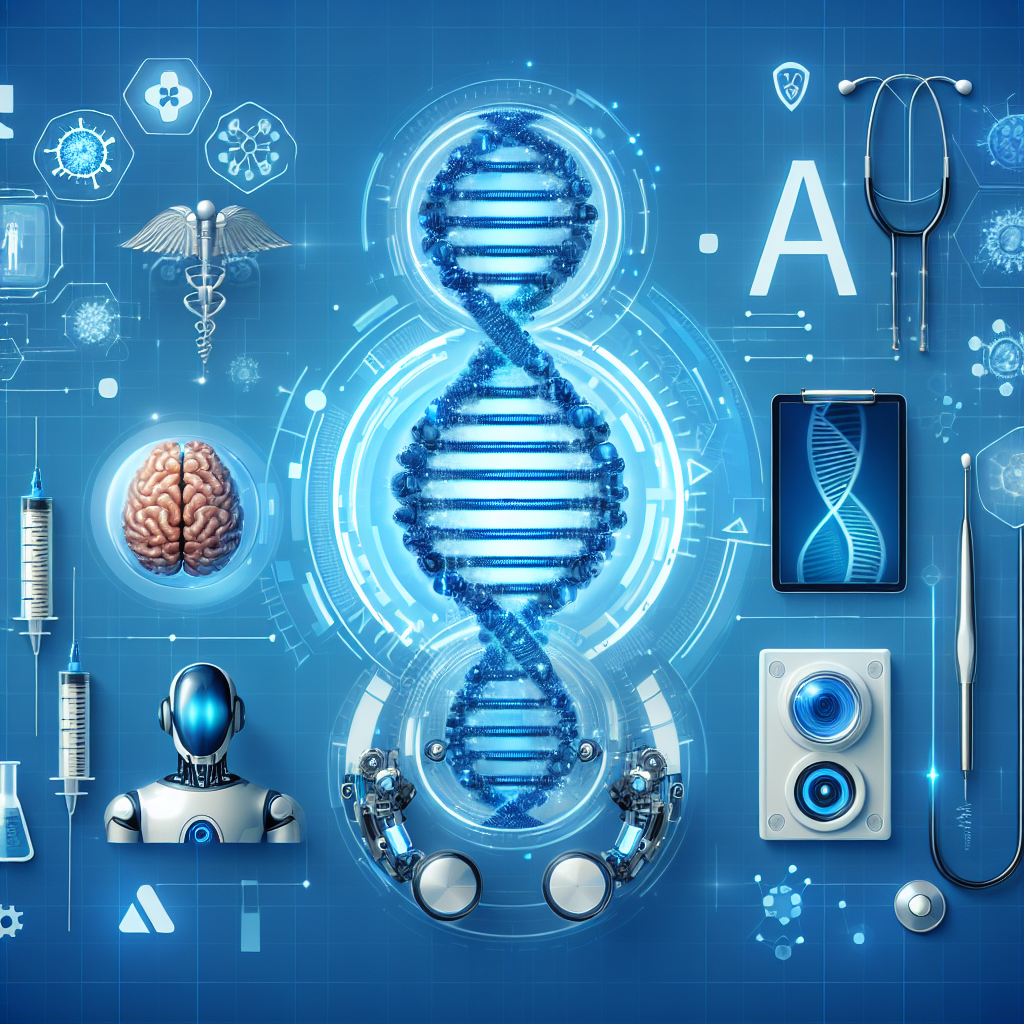Artificial Intelligence (AI) has been making significant strides in the field of medicine, and one area where its potential is particularly promising is in genomic medicine. Genomic medicine involves utilizing an individual’s genetic information to tailor medical treatments to their specific needs. By analyzing a person’s genetic makeup, healthcare providers can better understand their risk for certain diseases, predict how they might respond to different treatments, and even identify potential genetic mutations that could lead to the development of certain diseases.
AI has the potential to revolutionize genomic medicine by helping healthcare providers analyze vast amounts of genetic data quickly and accurately. Machine learning algorithms can sift through large datasets of genetic information to identify patterns that humans might miss, making it easier to pinpoint genetic variations that could be linked to specific diseases. This can lead to more personalized and effective treatment plans for patients, ultimately improving outcomes and saving lives.
One of the key benefits of AI in genomic medicine is its ability to identify genetic mutations that could be linked to rare diseases. Because rare diseases often have complex genetic causes, they can be difficult to diagnose and treat. AI can help healthcare providers analyze genetic data more efficiently, making it easier to identify the root cause of a rare disease and develop targeted treatment plans for patients.
In addition to rare diseases, AI can also be used to predict an individual’s risk for more common diseases, such as cancer or heart disease. By analyzing a person’s genetic information, AI algorithms can identify genetic variations that might increase their risk for certain diseases, allowing healthcare providers to take preventive measures or develop personalized treatment plans to mitigate that risk.
Furthermore, AI can also be used to improve the accuracy of genetic testing. By analyzing genetic data more thoroughly and efficiently, AI can help healthcare providers identify genetic mutations that might be missed by traditional testing methods. This can lead to more accurate diagnoses and treatment plans for patients, ultimately improving outcomes and reducing healthcare costs.
Despite these promising advancements, there are still some challenges to overcome in the integration of AI into genomic medicine. One of the key challenges is the need for large and diverse datasets of genetic information. AI algorithms rely on large amounts of data to identify patterns and make accurate predictions, so having access to comprehensive genetic datasets is crucial for the success of AI in genomic medicine.
Another challenge is ensuring the privacy and security of genetic data. Genetic information is highly personal and sensitive, and patients may be hesitant to share their genetic data if they are concerned about how it will be used or protected. Healthcare providers and researchers must take steps to ensure that patient data is kept secure and used responsibly to maintain patient trust and support the ongoing development of AI in genomic medicine.
Despite these challenges, the potential benefits of AI in genomic medicine are vast. By harnessing the power of AI to analyze genetic data more efficiently and accurately, healthcare providers can develop personalized treatment plans for patients, identify genetic mutations that could lead to the development of certain diseases, and improve the accuracy of genetic testing. This can ultimately lead to better outcomes for patients and a more efficient and effective healthcare system.
FAQs:
Q: How does AI analyze genetic data in genomic medicine?
A: AI uses machine learning algorithms to sift through large datasets of genetic information to identify patterns and variations that could be linked to specific diseases. By analyzing genetic data more efficiently and accurately, AI can help healthcare providers develop personalized treatment plans for patients and improve the accuracy of genetic testing.
Q: What are some of the benefits of AI in genomic medicine?
A: Some of the key benefits of AI in genomic medicine include the ability to identify genetic mutations linked to rare diseases, predict an individual’s risk for common diseases, and improve the accuracy of genetic testing. AI can help healthcare providers develop personalized treatment plans for patients, ultimately improving outcomes and saving lives.
Q: What are some of the challenges of integrating AI into genomic medicine?
A: Some of the key challenges of integrating AI into genomic medicine include the need for large and diverse datasets of genetic information, as well as concerns about the privacy and security of genetic data. Healthcare providers and researchers must take steps to address these challenges to ensure the success of AI in genomic medicine.

